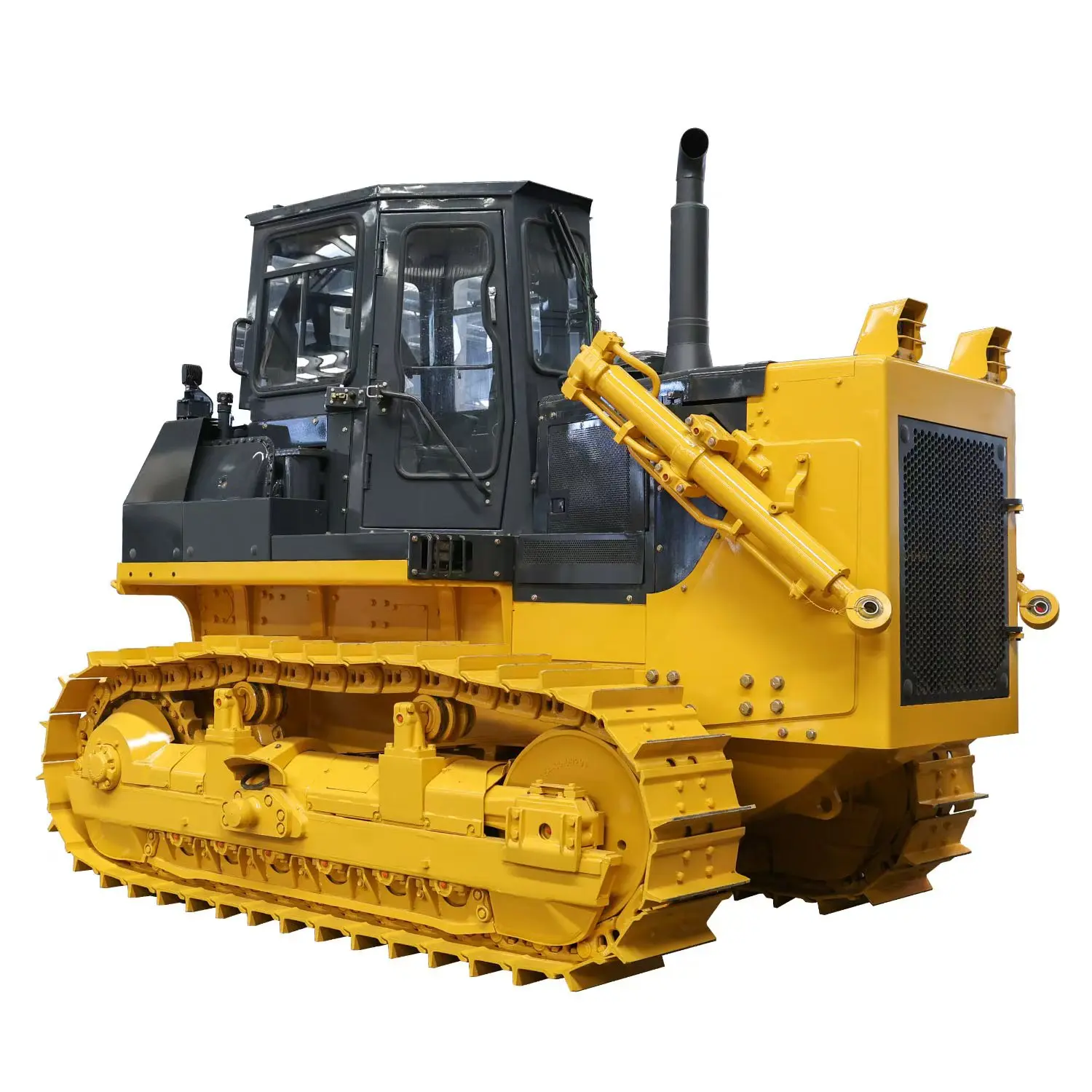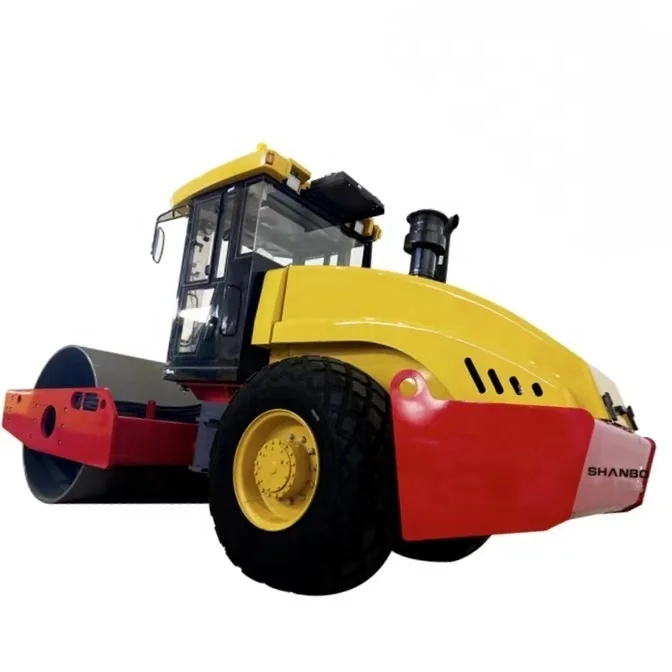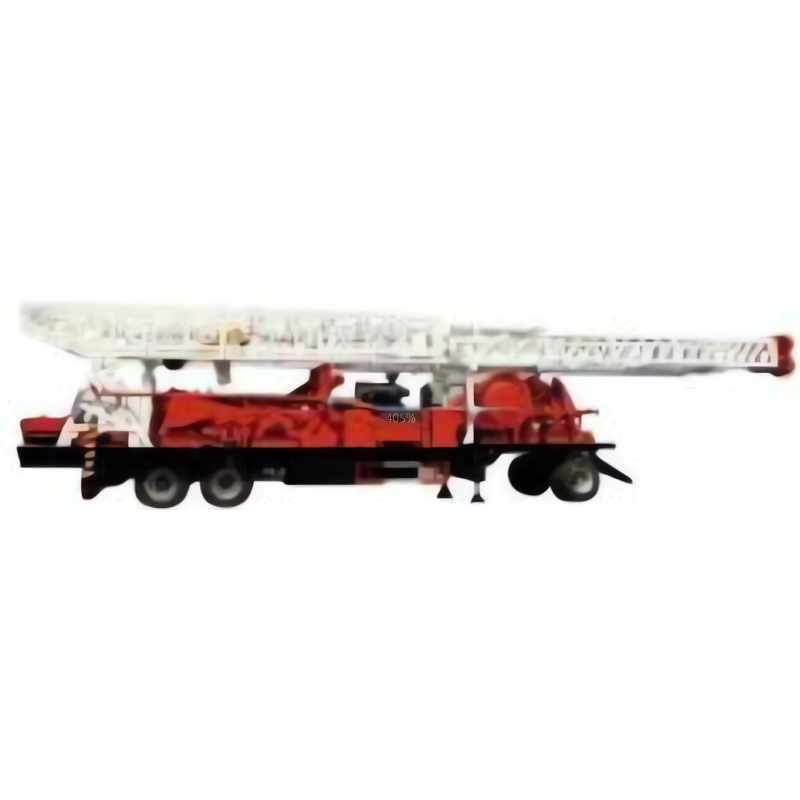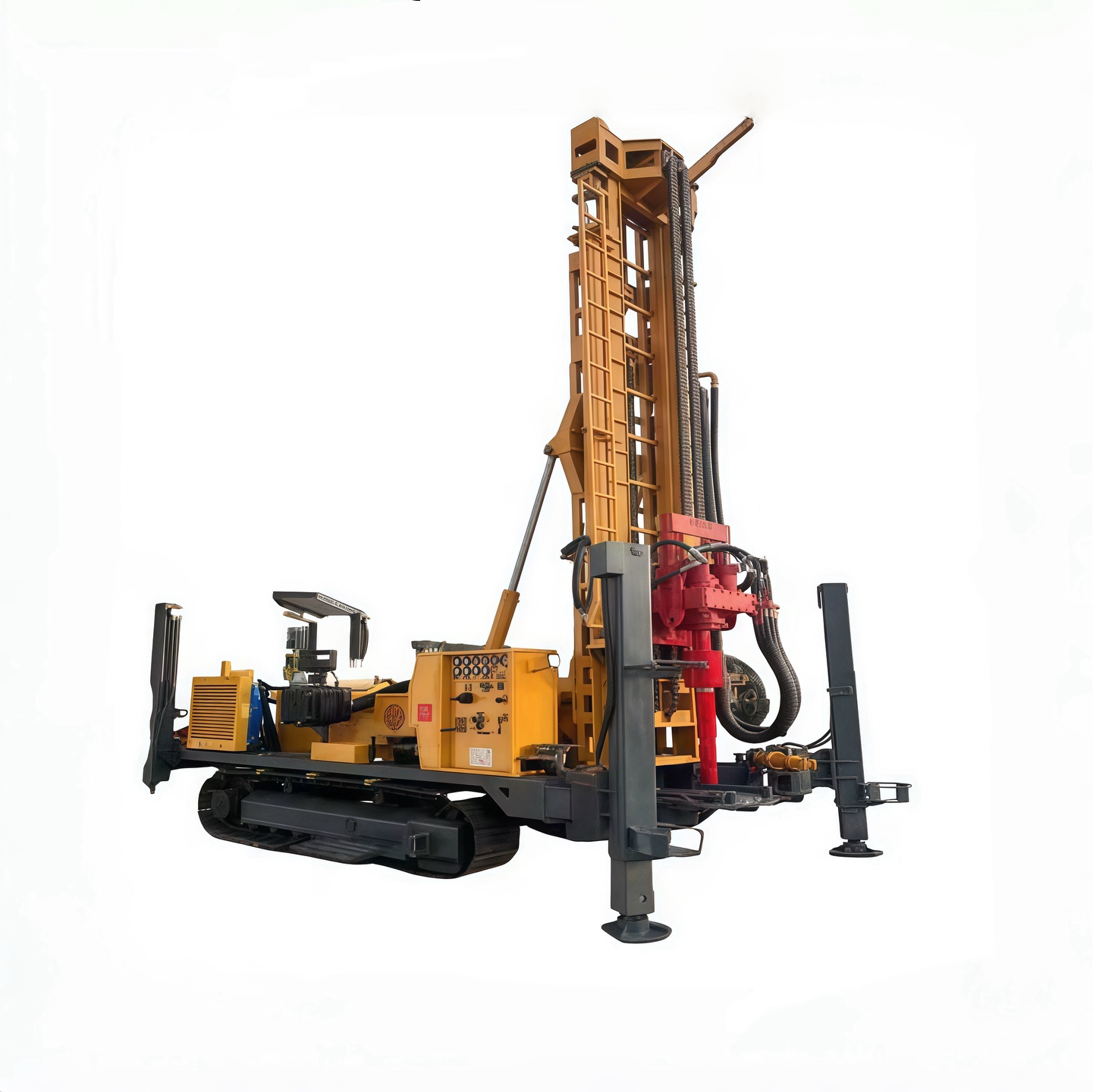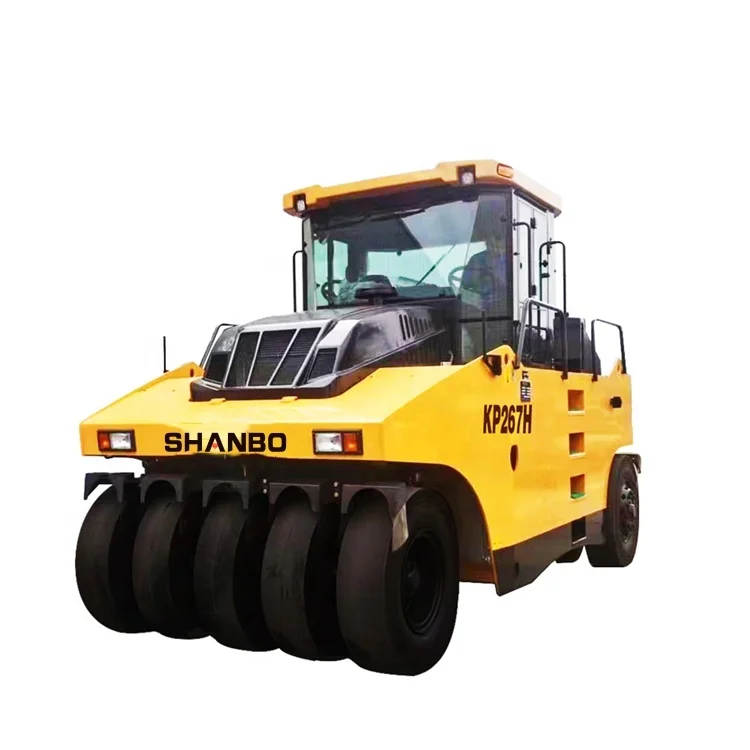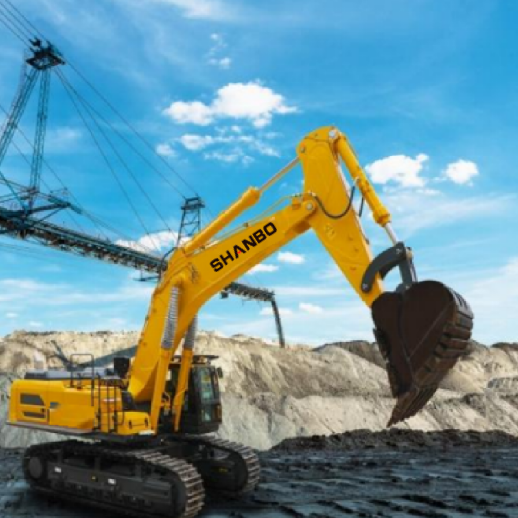How Much Is a Bulldozer and What Factors Affect the Price?
Understanding Bulldozer Types and Their Price Ranges
Crawler Bulldozers: Power vs. Cost Efficiency
Crawler bulldozers play a vital role in tough jobs where strength matters most, especially in construction sites and mines across the country. The track system gives these machines grip when working on rocky ground or muddy fields that would stall wheeled equipment. Sure, they come with a bigger price tag compared to other options out there, but experienced contractors know that those extra dollars paid off over time through reduced maintenance needs and longer service life. For big projects needing serious earth moving power, crawlers just make sense despite the initial expense.
Their ability to handle demanding tasks with reduced maintenance requirements offsets the higher upfront investment. Studies suggest that investing in higher-end models can lead to substantial savings on maintenance and fuel consumption over time, making them a wise choice for extended operations.
Despite their seemingly prohibitive purchase price, crawler bulldozers often emerge as more cost-efficient for projects in challenging terrains. Their capability to maintain performance levels where wheeled models might struggle ensures operational continuity and efficiency. When evaluating their suitability, balancing horsepower and operational expenses is crucial.
Investing wisely in premium models can significantly lower overall costs through minimized downtime and fuel efficiency gains. Hence, for organizations tackling demanding earthworks, crawler bulldozers remain an optimal and financially sound option.
Hydraulic vs. Conventional Models: Technology Impact
In the realm of bulldozers, hydraulic dozers stand out for offering superior control and efficiency over conventional models, directly translating into enhanced productivity on job sites. The technology underlying these hydraulic systems enables precise adjustments, which means operators can manage tasks accurately with less effort.
These models might cost more upfront, but the advanced features definitely make sense when looking at better fuel economy and longer equipment life. We're seeing more companies go for hydraulic bulldozers lately, which shows just how much tech improvements affect what people are willing to pay. Newer technology isn't just making machines work better, it's changing what business owners consider worth investing in for their operations.
The technological benefits provided by hydraulic bulldozers equate to lower long-term operational costs, which is a decisive factor for many construction firms. For example, enhanced fuel efficiency means less expenditure on fuel over a project's lifetime, and longer equipment lifespan reduces the frequency of capital equipment turnover.
Market analysts report an increasing demand for these models, emphasizing technology's role in the industry shift. By investing in hydraulic bulldozers, organizations can ensure they are equipped with technology-forward solutions, a necessity in today's competitive construction landscapes.
Small vs. Large Bulldozers: Applications and Costs
The choice between small and large bulldozers usually hinges on the nature and scale of the project at hand. Small bulldozers are highly advantageous for residential construction projects due to their cost-effectiveness and superior maneuverability, allowing operators to work within smaller, confined spaces efficiently.
On the other hand, large bulldozers are essential for extensive industrial applications where the volume of material and scope of work are considerably more massive. The cost implication is that small bulldozers, because of their efficiency in specific applications, generally entail lower operational expenses compared to their larger counterparts.
When choosing equipment for a job site, knowing exactly what the project requires matters a lot. Getting the right size bulldozer helps avoid wasting money and keeps budget numbers realistic for what's actually needed on ground. Contractors who have worked this out report that matching bulldozer sizes to specific tasks makes operations run smoother and stops unexpected expenses from creeping in. Just think about it this way: when machinery fits the workload properly, companies spend less time waiting around or fixing breakdowns caused by mismatched equipment. Most seasoned operators will tell anyone willing to listen that proper sizing isn't just about saving cash either it directly affects how well projects get completed within deadlines.
Key Factors Influencing Bulldozer Price
Size and Horsepower: Matching Capability to Budget
Size and power are big deals when it comes to picking out a bulldozer, and they直接影响 the final cost. Bigger machines with more horsepower tend to cost a lot more money since they can tackle tougher jobs on construction sites. Still, matching what the job actually needs with what the machine offers makes sense for anyone watching their bottom line. Getting something too big just wastes cash, while going too small creates headaches down the road. Most contractors find that spending time upfront figuring out exact requirements saves them money in the long run without sacrificing performance.
As experts often suggest, estimating horsepower requirements excessively can lead to inflated initial expenses, stressing the importance of a clear understanding of one's project needs.
Attachments and Customizations: Cost Adders
Attachments and customizations can significantly increase the total cost of a bulldozer. Various modifications, such as blades, rippers, and winches, enhance functionality but require careful consideration in budgeting to avoid excessive spending.
Customization options offer operators the ability to tailor machines to specific projects, which, according to industry reports, can enhance resale value due to the increased utility they provide. The key is balancing customization desires with cost efficiency to maximize investment.
Fuel Efficiency and Operating Costs Over Time
Fuel efficiency is another critical factor influencing bulldozer operating costs over time. Models offering higher fuel efficiency might require a higher upfront investment but promise noteworthy savings throughout their lifespan. Evaluating performance specs with regards to fuel efficiency is necessary for buyers looking to control long-term expenses.
Calculating the total cost of ownership requires a comprehensive view of both immediate purchase costs and the ongoing operational expenses tied to the bulldozer's use.
Brand Reputation and Resale Value Dynamics
A bulldozer's brand name plays a big role in how much it costs when new. Well known brands tend to cost more upfront because people trust them to work reliably over time and they're popular among buyers looking for quality equipment. When it comes to selling secondhand, this brand factor matters even more. Machines kept in good condition from companies like Shanbo usually sell for better prices later on since buyers know what they're getting with those names.
Therefore, trusting in brands with strong service support and reliability can secure a more prudent investment, leveraging higher resale values based on brand longevity and market perception.
Market Dynamics Affecting Bulldozer Costs
Global Supply Chain and Manufacturing Demands
The state of global supply chains and what's happening on the manufacturing front really affects how much bulldozers cost these days. When there are shortages or long waits for getting hold of raw materials, prices tend to jump around quite a bit. That means equipment makers need to keep adjusting what they charge if they want to stay ahead in the market. We've seen material costs go through the roof lately because of all those supply chain issues. As a result, most construction equipment manufacturers have had to raise their prices just to cover these extra costs. Some companies are even looking at alternative materials or redesigning parts to cut down on expenses while still delivering quality machines.
The numbers don't lie these days when it comes to price increases caused by all sorts of disruptions hitting the market hard. Construction budgets get hit right where it hurts most because of this. When manufacturing demand goes up fast, particularly in areas that are growing at breakneck speed, keeping the supply chain running smoothly gets tougher day by day. That's why bulldozer prices keep climbing. We're living in pretty unpredictable times for markets, so companies need to really focus on how they handle their supply chains if they want any hope of holding down those rising costs without passing everything onto customers.
Regional Price Variations: Availability and Logistics
The prices of bulldozers tend to vary quite a bit depending on where someone lives. This happens mainly because some places have easier access to these machines while others need them shipped long distances. People living far away usually end up paying more money since transporting heavy equipment across country is expensive business. The extra cost eats into their budget and makes it harder to decide whether buying makes financial sense. There are other things that affect how much folks pay too. For instance, if there's high demand in certain regions or if manufacturers happen to be located nearby, prices drop. Local economies play a role as well. A construction boom in one area might drive up prices there compared to somewhere else where nobody needs bulldozers right now.
Analyzing these trends allows potential buyers to identify the most cost-effective regions for purchasing bulldozers. By understanding the logistical nuances and regional demand fluctuations, businesses can make informed purchasing decisions based on location-specific conditions, potentially saving on expenses through strategic procurement practices.
Economic Factors: Interest Rates and Industry Trends
Interest rates play a big role in how people finance bulldozers and what choices they end up making. When rates go up, the total price tag for owning one of these machines gets much higher, so anyone thinking about buying needs to factor this into their budget planning. What happens in the construction sector matters too. For instance, when governments pour money into road projects or housing developments, there's usually a spike in demand for heavy equipment like bulldozers, driving prices upward. On the flip side, during tough economic times when fewer projects are getting green lights, demand drops off and prices tend to come down. This pattern has been observed time and again across different markets around the country.
Understanding these economic dynamics can help businesses time their purchases to optimize budget allocations and gain cost efficiencies. By staying attuned to macroeconomic trends, businesses can more effectively navigate the bulldozer market.
Rental vs. Purchase: Cost-Benefit Analysis
Daily/Weekly Rental Rates for Different Models
Knowing what bulldozers cost to rent each day or week matters a lot when money is tight on construction sites. Prices jump all over the place depending on specs, how big the machine is, and what's hot in the market right now. Take a look at some actual numbers from industry sources: the cheapest option, a 40 horsepower unit, runs about $275 a day. Step up to something with more power like a 150HP model and expect to pay closer to $350 per day. These differences really add up over time, so getting familiar with these price ranges helps project managers plan better without breaking budgets.
Meanwhile, high-end models might cost upwards of $1000 per day. It's essential to compare these rates, considering the project's duration and budget constraints. Ultimately, while short-term rentals offer immediate affordability, they could result in higher long-term expenses if the project unexpectedly extends, highlighting the need for careful planning.
Long-Term Ownership Costs: Maintenance and Storage
Keeping a bulldozer for the long haul comes with all sorts of expenses beyond just the initial purchase price. Maintenance is something no owner wants to hear about, but it's absolutely necessary if they want their machine to last and perform well. We're talking regular oil changes, hydraulic system checks, blade replacements every few months depending on usage intensity. These routine services definitely eat into the wallet when added up year after year. Then there's the whole storage issue nobody really thinks about upfront. A bulldozer sitting idle still needs protection from weather damage, so most operators end up paying for covered storage spaces or building special sheds. Some even rent out parts of their equipment during off-seasons just to offset these ongoing costs.
Insights from industry professionals underline that consistent maintenance routines can prolong a bulldozer's operational life, thereby reducing overall ownership costs. Thus, evaluating these elements is essential for anyone considering bulldozer purchase over rental.
Project-Specific Financial Considerations
When weighing renting versus purchasing a bulldozer, project-specific financial considerations are paramount. The nature of the project, including its scale and specific equipment needs, will dictate the most cost-effective option. Evaluating potential timelines, usage frequency, and bulldozer capabilities can result in well-informed financial decisions.
Studies show that when companies actually take the time to analyze their projects specifically, they tend to save money in the long run. This is particularly true for construction projects where bulldozers just sit around doing nothing most of the day. The numbers don't lie about how much cash gets wasted on idle equipment. That's why smart businesses plan their budgets carefully before starting any job. They look at what exactly needs to get done and then decide whether it makes sense to rent machines or buy them outright. Making this decision based on real project needs rather than guesswork can make all the difference in keeping costs under control.
Financing and Budgeting Strategies
Leasing Options for Short-Term Needs
Leasing offers a flexible solution for projects with temporary bulldozer requirements. It is particularly beneficial because it allows businesses to use equipment without the large upfront costs associated with a purchase. This financial strategy is often more appealing for short-term projects requiring budget flexibility.
Looking at various lease agreements and what they say about who handles maintenance stuff matters a lot because these details really affect how good of a deal leasing actually is. Many small construction firms have started going this route lately since it lets them get their hands on needed machinery without breaking the bank upfront. Contractors often find themselves stuck between buying expensive gear they might only need occasionally or paying monthly fees for something they can't customize much. Still, for most budget-conscious businesses, the math still adds up when comparing long term costs versus immediate capital outlay.
Loans and Payment Plans for New Equipment
Securing loans for purchasing bulldozers is a strategic way to spread out the significant initial costs over time, making them more manageable. By analyzing various financing options, one can find favorable interest rates and payment terms that align with financial goals.
It is advisable to scrutinize and compare lenders' offers meticulously to ensure the best financial deal. According to industry data, selecting the right financing arrangement can profoundly impact budgeting efficiency and enable access to essential machinery without overwhelming financial strain.
Tax Implications and Depreciation Benefits
Knowing how taxes work when buying a bulldozer can save a lot of money in the long run. Most people don't realize that equipment like bulldozers depreciate over time, so there are tax breaks built into that process. There's also potential for various write offs that help reduce what gets paid upfront. Getting advice from someone who knows tax law inside out makes all the difference here. These experts can point out hidden opportunities for deductions that most business owners would miss completely. Working with them ensures companies aren't leaving cash on the table while dealing with all the complicated rules around commercial equipment purchases.
Expert advice underscores that skillfully planning for these tax benefits not only maximizes savings but also enhances overall project budgeting, leading to more favorable financial outcomes.
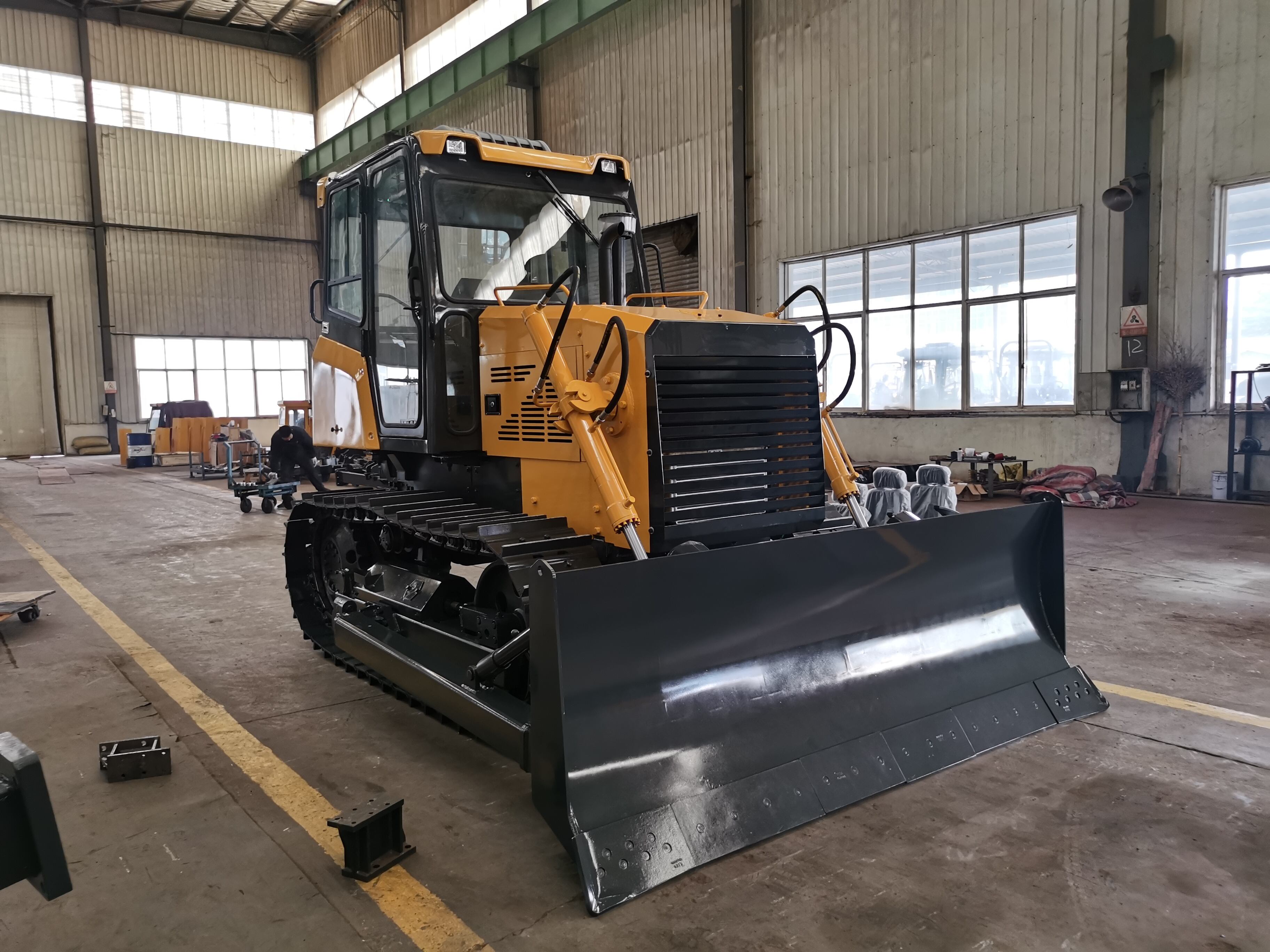
Future Trends in Bulldozer Pricing
Electric and Hybrid Models: Cost Projections
Electric and hybrid bulldozers are expected to shake up how much companies pay for equipment in construction markets across the country. At first glance, these newer machines tend to carry bigger price tags because manufacturers pack them full of cutting edge tech and green credentials that traditional diesel models just don't have. But look beyond the sticker shock and things change over time. Contractors who invest now often see their monthly expenses drop substantially down the road since these machines require less fuel and generally need fewer repairs than older counterparts. Some fleet managers report maintenance intervals stretching out by almost 30% after switching to electric power sources.
Sustainable construction equipment is becoming more popular these days, according to recent market data that points to growing interest in eco-friendly alternatives. Construction firms are increasingly interested in making this switch because they want to cut down on their carbon footprint but also see real savings from using electric bulldozers instead of traditional models. Some companies that started adopting this technology early on have seen their running expenses drop significantly, plus there's the obvious benefit to the environment too. These results suggest that investing in green construction tech might be worth considering for businesses wanting both cost savings and greener operations.
Automation and GPS Technology Premiums
Bulldozers equipped with automated systems and GPS tech now come with higher price tags than their traditional counterparts. Construction firms looking to boost productivity find these features particularly attractive, especially those working on large scale projects where even small improvements matter. For business owners trying to figure out equipment costs, knowing how much extra they'll pay for smart machinery makes all the difference when planning budgets. Investing in newer models might seem expensive upfront, but many contractors see value in owning machines that won't become obsolete as quickly in this rapidly changing industry landscape.
Industry reports highlight that automated equipment can lead to significant labor cost savings, providing a compelling reason for their adoption despite higher upfront costs. As businesses weigh these investment options, they must consider the long-term value add of automation technologies that promise to enhance productivity and streamline workflow.
Sustainability Regulations and Price Impacts
Emerging sustainability regulations are poised to affect bulldozer prices by pressing manufacturers to develop cleaner technologies, potentially leading to increased costs. These regulations can result in financial implications for businesses through compliance fees or incentives designed to encourage the use of environmentally friendly equipment.
Recent research from environmental agencies suggests we're seeing major changes in how companies price their construction gear, especially since green initiatives have become so prominent in the industry. Contractors need to start thinking about new regulations when setting their financial plans for the coming years. With sustainability becoming a bigger concern across construction sites nationwide, bulldozer costs are already starting to climb. Some manufacturers are introducing hybrid models while others tweak existing designs to meet stricter emissions standards. This push toward greener machinery isn't just reshaping what gets built on site but also how much money flows through the entire supply chain.
Conclusion
When looking at bulldozer prices, there are actually quite a few things that affect what people pay. The type of model matters a lot, along with how much tech has been built into them plus what's happening economically right now. For anyone wanting to buy one without getting ripped off, it really helps to know all these different elements before signing on the dotted line. Traditional bulldozers still cost money obviously, but those fancy ones with automation features come with their own price tags too. Getting familiar with how the whole market works isn't just nice to know either. Most experienced operators will tell new buyers that spending time researching current models and asking around about real world pricing makes all the difference when trying to find something that fits both budget constraints and job requirements.
Shanbo bulldozers really make waves in today's tough market because they mix cutting edge tech with solid dependability at prices that work for most construction crews. These machines are built tough and packed with smart features that actually get used on job sites rather than just sitting on spec sheets. When folks start shopping around for bulldozers available locally or through dealerships, Shanbo consistently comes up as a strong contender. Their equipment saves money over time while still getting the job done right, which matters a lot when projects run tight on schedules and budgets. Many contractors who switched to Shanbo report fewer breakdowns during critical phases of earthmoving operations.
Recommended Products
 Hot News
Hot News
-
“Water Savior” 200 m Reverse Circulation Water Well Drills Arrive in Uzbekistan
2025-03-28
-
Wheel Loader vs Bulldozer: Which Heavy Machine Fits Your Project?
2026-01-22
-
Bulldozer Track Parts Explained: Types, Functions, and Maintenance Tips
2026-01-21
-
Top Global Bulldozer Manufacturers: Leading Brands You Should Know
2026-01-20
-
Construction Excavator Overview: Types, Functions, and Key Advantages
2026-01-19
-
Ranking the Best Bulldozer Models for Heavy Construction and Mining
2026-01-17
